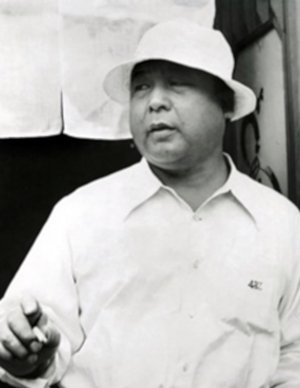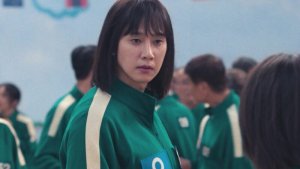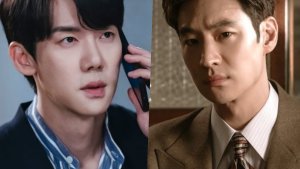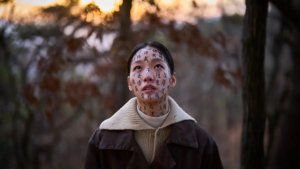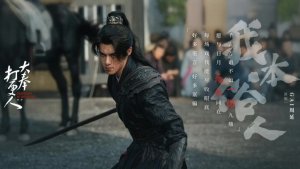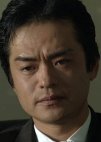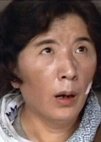Shimizu Hiroshi
- Name: Shimizu Hiroshi
- Native name: 清水宏
- Also Known as: しみず ひろし
- Nationality: Japanese
- Gender: Male
- Born: March 28, 1903
- Died: June 23, 1966
He was born in Nishiwataru, Yama-ka, Iwata, Shizuoka, Japan. Due to his parents' strained relationship, he was raised by his grandfather at his mother's family home upstream of the Tenryu River. His father was said to be an employee of Furukawa Mining, while his mother was the daughter of the Ohashi family, who owned extensive land and engaged in forestry in the mountain village. He is distantly related to Uraoka Keiichi, an editor of Shochiku Nouvelle Vague.
During his childhood in the village, he was mischievous and had poor grades. Because of this, he was taken in by his father, who lived in Hamamatsucho, Shibaku, Tokyo, Japan. In 1910, he transferred to the second grade at Shinmei Elementary School in Sakuragawa-cho, Shibaku.
At his father's insistence, he enrolled in a junior high school in Hamamatsu. However, he admitted to engaging in petty theft and entertainment with his delinquent friends, neglecting both his studies and extracurricular activities. After graduating in 1920, Shimizu claimed to have enrolled at the Faculty of Agriculture at Hokkaido University. According to his own account, he dropped out after one year due to finding his studies boring. However, many film industry insiders at the time doubted his academic credentials.
After returning to Tokyo in 1921, he lived as a projectionist in Asakusa. Through an introduction by Suzuki Teruo, a cinematographer at Kokkatsu Sumazu Studio, he became an assistant to Harada Mitsuo. In 1922, Harada's "Gakugei Katsudo Shashinsha" disbanded, and Shimizu became a live-in assistant to Harada.
Around November 1922, through his father's acquaintance with Arishima Takeo during his time in the United States, Shigeru Shimizu was introduced to Osanai Kaoru and entered the Shochiku Kamata Studios with the recommendation of Kurishima Sumiko. He was assigned as an assistant to director Ikeda Yoshinobu.
In June 1924, at the age of 21, Shimizu was promoted to director. In July of the same year, just two years after joining the company, he made his directorial debut with "Beyond the Pass".
In 1924 Shimizu fell in love with the actress Tanaka Kinuyo, but due to her rising status as a potential star actress, they couldn't openly marry. They were advised to have a "trial marriage." They cohabitated from 1927 but constant quarrels led to their breakup in 1929. In 1930, Shimizu married a famous courtesan from Izu, but they did not have children and instead adopted a daughter.
In 1939, at the age of 36, Shimizu became the leading director at Shochiku Ofuna. Amidst the socio-political backdrop of the Sino-Japanese War that began in 1937, he responded to the demands of the era by filming "Tomodachi" (1940) in Korea and "Sayan no Kane" (1943) in Taiwan.
However, in 1943, during the production of "Sayon no Kane" in Taiwan, he was expelled from the Shochiku Ofuna Studios. For a time, he left the studio and lived a life exploring Buddhist statues in Kyoto and Nara.
After leaving Shochiku following the war, there were rumors that he had temporarily withdrawn from public life. However, during this period, he took in over a dozen war orphans and raised them in the mountains of Atami. In 1948, he founded his independent production company, "Hachinonisu Eiga".
In 1956, he was invited by Mizoguchi Kenji to join Daiei and signed an exclusive contract. His final project was as a supervisor for the NHK television drama series "Ryokan-sama to Kodomotachi".
In his private life after the war, he moved to a farm in Izu, which he purchased in 1949. He became well-known for living there with war orphan children in a communal setting. In his later years, in 1965, he built a large mansion in Kitasaga, Kyoto, as part of his recuperation from a heart attack he suffered in 1951.
On June 23, 1966, at 2 a.m., while in his study at his home in Kitasaga, he suddenly passed away from a heart attack.
(Source: Japanese = Wikipedia || Translation = MyDramaList) Edit Biography
Screenwriter
| Title | Rating |
|---|---|
| Kids Return: Saikai no Toki | 6.9 |
| Farewell My Darling | 6.8 |
Director
| Title | Rating |
|---|---|
| A Mother's Journey | 0.0 |
| Dancing Girl | 6.0 |
| Sayon's Bell | 0.0 |
| Nobuko | 7.1 |
| Katei Nikki: Zenpen | 0.0 |
| Children in the Wind | 6.0 |
| A Star Athlete | 6.0 |
| The Golden Demon | 0.0 |
| Forget Love for Now | 6.7 |
| A Hero of Tokyo | 7.0 |
| Kinkanshoku | 0.0 |
| Japanese Girls at the Harbor | 6.4 |
| The Lady Who Wept in Spring | 7.0 |
| Konsen Nita Fufu | 0.0 |
| Gakidaisho | 0.0 |
| Hoyo | 0.0 |
| Renai dai Ikka | 0.0 |
| Undying Pearl | 7.4 |
| Mori no Kajiya | 0.0 |
| Aiyoku Hensozu | 0.0 |
| Shusse no Chikamichi | 0.0 |
Screenwriter & Director
| Title | Rating |
|---|---|
| Mail de Todoita Story | 1.0 |
| The Sentimental Idiot | 0.0 |
| Tokyo Profile | 7.5 |
| Momo no Hana no Sakushita de | 0.0 |
| A Mother's Love | 0.0 |
| Ohara Shosuke-san | 0.0 |
| Ashita wa Nihonbare | 0.0 |
| Children of the Beehive | 7.3 |
| Ornamental Hairpin | 7.1 |
| Introspection Tower | 6.1 |
| Four Seasons of Children | 6.0 |
| The Masseurs and a Woman | 7.1 |
| Mr. Thank You | 7.4 |
| Jiman no Segare | 0.0 |
Art Director
| Title | Rating |
|---|---|
| Kozure Okami | 6.9 |
Original Creator
| Title | Rating |
|---|---|
| Walk Cheerfully | 0.0 |
| I Graduated, But... | 7.1 |
Drama
| Title | Rating |
|---|---|
|
Uradeka
Japanese Drama, 1992, 12 eps
(Ep. 7)
(Guest Role)
|
5.0
|
|
Bay City Deka
Japanese Drama, 1987, 24 eps
(Ep. 7)
(Guest Role)
|
0.0
|
|
G-Men '82
Japanese Drama, 1982, 17 eps
(Ep. 8)
(Guest Role)
|
0.0
|
|
Doshin Akatsuki Rannosuke
Japanese Drama, 1981, 45 eps
(Ep. 43)
(Guest Role)
|
0.0
|
Movie
| Title | Rating |
|---|---|
|
World Apartment Horror
Japanese Movie, 1991,
(Support Role)
|
6.4
|
|
Comic Magazine
Japanese Movie, 1986,
(Unknown)
|
7.2
|
|
Mosquito on the Tenth Floor
Japanese Movie, 1983,
[Male Colleague B]
(Support Role)
|
7.4
|
|
Rape Hunter: Target Woman
Japanese Movie, 1980,
[Loan shark bill collector]
(Support Role)
|
6.0
|
|
Oretachi ni Hakahanai
Japanese Movie, 1979,
Yamao
(Support Role)
|
3.0
|
|
The Murder Game
Japanese Movie, 1978,
(Bit part)
|
6.8
|
|
The Most Dangerous Game
Japanese Movie, 1978,
(Unknown)
|
6.4
|
|
Ghost of Saga Mansion
Japanese Movie, 1953,
Manabe
(Unknown)
|
2.0
|
Special
| Title | Rating |
|---|---|
|
Unmeitoge
Japanese Special, 1993, 1 eps
(Unknown)
|
8.0
|
Trending Articles
'Squid Game Season 2' Park Sung Hoon under controversy for an adult material post on Instagram
News - Dec 30, 2024
Park Sung Hoon is getting criticized for an Instagram story he posted.
Zhao Lusi breaks silence on suffering from depression and physical abuse
News - Jan 1, 2025
Zhao Lusi publishes a post on her Weibo explaining all she has been going through
Zhao Lusi's agency addresses fans' concerns about her health
News - Dec 27, 2024
Check out the full statement released by Zhao Lusi's agency in response to fans' concerns over her weak health
Chinese actress Zhao Lusi allegedly abused by her person in charge
News - Dec 31, 2024
Full details inside
'When the Phone Rings's Yoo Yeon Seok, Lee Je Hoon among the nominees for Daesang (MBC Drama Awards)
News - Dec 27, 2024
Check out the full list of nominees for the Grand Prize (Daesang) for MBC Drama Awards 2024
21 best Korean movies of 2024
Editorials - Dec 26, 2024
As 2024 draws to a close, let's take a look at some of the best Korean movies of the year
'A Shop for Killers' confirmed to film the new season next year!
News - Dec 31, 2024
The production for the second season of A Shop for Killers is officially confirmed.
Dylan Wang's 'Guardians of the Dafeng' premieres amidst high buzz and mixed reviews
News - Dec 30, 2024
The craze for Guardians of the Dafeng reaches an all-time high in China

